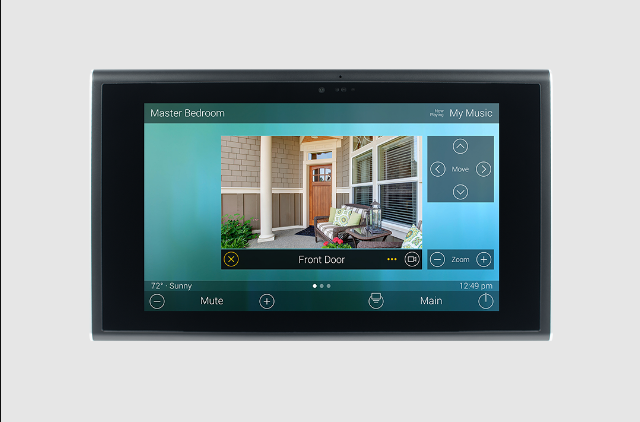The Role and Importance of a Home Controller in Smart Living
In today's fast-paced digital world, the concept of a smart home has become increasingly popular. With the integration of technology into everyday living, managing household tasks, security, entertainment, and energy consumption has never been easier. At the center of this transformation lies a crucial device known as the home controller. This powerful hub acts as the brain of a smart home, streamlining automation and ensuring seamless communication between devices.
Understanding the Home Controller
A home controller is a central device or software system that connects and manages various smart devices within a home. These devices might include lights, thermostats, security cameras, locks, appliances, and entertainment systems. The home controller ensures that all these elements work together harmoniously, often through a single interface or mobile app.
By consolidating control into one place, a home controller removes the need for separate apps or manual operations. For instance, instead of adjusting a thermostat manually or using different remotes for lights and speakers, a homeowner can control everything with one unified platform. This not only enhances convenience but also introduces a new level of efficiency to modern living.
Seamless Connectivity and Integration
One of the greatest benefits of a home controller is its ability to unify various technologies that may otherwise be incompatible. Different devices and brands often operate on separate communication protocols like Wi-Fi, Bluetooth, Zigbee, or Z-Wave. A robust home controller acts as a translator between these protocols, allowing all devices to communicate effectively.
This integration is essential for setting up smart routines or automations. For example, a user can program their home controller to turn off the lights, lock the doors, and lower the thermostat when they leave the house. Similarly, it can be set to turn on lights and play relaxing music when someone returns home in the evening.
Enhanced Home Security
Security is a top concern for most homeowners, and a home controller plays a significant role in safeguarding the household. With a centralized control system, homeowners can monitor security cameras, receive alerts from motion sensors, and remotely lock or unlock doors. In case of an emergency, the controller can notify homeowners or even alert emergency services automatically.
Furthermore, some home controllers are equipped with artificial intelligence that can learn a homeowner's routines and detect unusual behavior. This smart detection helps in preventing unauthorized access or identifying potential threats early on.
Energy Efficiency and Sustainability
Another compelling reason to invest in a home controller is the potential for energy savings. By automating lighting, heating, and cooling systems based on occupancy or time of day, the controller helps reduce unnecessary energy consumption. Smart thermostats connected to a home controller can learn user preferences and adjust settings to maintain comfort without wasting energy.
Additionally, the controller can provide real-time data on energy usage, allowing homeowners to make informed decisions about their consumption habits. Over time, this can lead to noticeable reductions in energy bills and contribute to a more sustainable lifestyle.
Personalized Living Experience
The modern home controller is not just about automation; it’s about personalization. Users can create specific scenes or modes tailored to their lifestyle. Whether it’s a "movie night" setting that dims the lights and starts the home theater, or a "good morning" routine that gradually turns on lights and starts the coffee maker, the possibilities are vast.
These personalized experiences are made possible through intuitive interfaces, voice control integration, and learning algorithms. Voice assistants like Amazon Alexa, Google Assistant, or Apple Siri are commonly paired with home controllers, making the control process even more convenient.
Choosing the Right Home Controller
Selecting the right home controller depends on the user’s needs, existing devices, and level of technical expertise. Some controllers are designed for beginners and offer plug-and-play functionality, while others provide advanced customization options for tech-savvy users. Compatibility is key—ensuring the controller supports all existing and planned devices is crucial for a smooth smart home experience.
Scalability is another important factor. As smart homes evolve, users often add new devices and features. A good home controller should be flexible enough to grow with the household’s needs without requiring frequent upgrades or replacements.
The Future of Smart Homes with Home Controllers
As technology continues to advance, the role of the home controller will become even more central. Innovations in artificial intelligence, machine learning, and edge computing are set to enhance the capabilities of controllers, making them smarter and more intuitive. Future home controllers may anticipate needs before a command is given, adapting to changes in schedule, mood, or weather.
Moreover, the integration of renewable energy systems, such as solar panels and battery storage, with home controllers is gaining traction. These developments will further empower homeowners to manage energy consumption and reduce environmental impact.
Conclusion
The home controller is more than just a convenience—it is the cornerstone of modern smart living. By bringing together all smart devices under one roof, it simplifies daily tasks, enhances security, promotes energy efficiency, and offers a personalized lifestyle experience. As homes become more intelligent, the importance of a reliable and capable home controller will only continue to grow. Investing in the right controller today is a step toward a smarter, safer, and more connected future.
